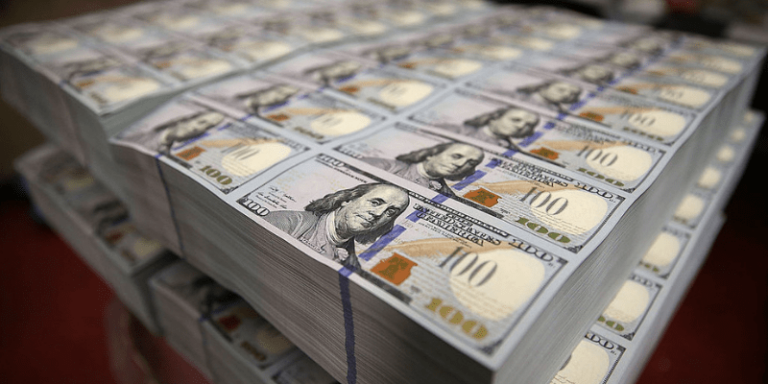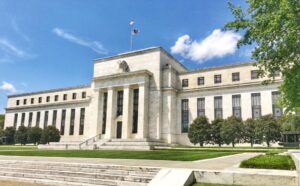What is the Federal Reserve?
How does the Fed work?
By: Andrew Moran | August 23, 2019 | 399 Words

(Photo by Mark Wilson/Getty Images)
The Federal Reserve is in the news again, but since it doesn’t enter family conversations around the dinner table all that much, the key question is: What is the Federal Reserve?
The Federal Reserve (also known as the Fed) is the central bank of the US. America didn’t always have a central bank. It was created when President Woodrow Wilson signed the Federal Reserve Act into law on December 23, 1913. He hoped the Fed would give the United States a stable, safe, and adaptable monetary system.
In the beginning, the Federal Reserve only had a few tasks, such as maximizing employment and stabilizing the price of items. It has since grown, and now regulates finance, supervises large and small banks, and provides financial services to the government and some other institutions. The Federal Reserve is independent of the US government because its policies do not need to be approved by Congress or the president. It is now considered the most powerful financial institution in the world.
Pros of the Central Bank
A central bank can help other banks during economic downturns by providing them with cash. When trouble hits the world’s largest economy, it is the Fed’s job to make sure banks can weather the storm.
The Fed has also kept overall prices (of goods and services) under control since the mid-1980s.
The Fed also allowed the US dollar to become one of the most reliable currencies around the world, so that it became accepted almost anywhere.
Cons of the Federal Reserve

(Photo by Smith Collection/Gado/Getty Images)
Fed policy protects banks and big financial institutions even when they are failing. The Fed has protected banks from the consequences of big risks and bad investments by giving them huge amounts of cash as “bail outs.”
Since the Fed does not need approval from elected officials for anything it does, it is accountable to no one. Because of this, people worry about transparency.
Fed officials publish documents, reports to Congress twice a year, and delivers speeches. The open secret in Washington, however, is that Congress is powerless to offer any real oversight over the Fed. This has created fears that the central bank might be working in secrecy, which is why there has been a bipartisan push in recent years to audit the Federal Reserve.
















